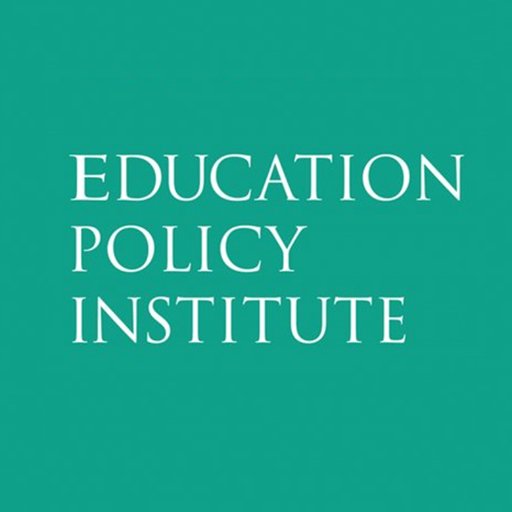
Education Policy Institute
@EduPolicyInst
Followers
24K
Following
1K
Media
3K
Statuses
15K
The Education Policy Institute (EPI) is an independent, impartial, and evidence-based research institute that promotes high quality education
London SW1
Joined May 2010
Young learners in England are facing a deepening crisis. Our Annual Report shows that disadvantaged five-year-olds are falling further behind their peers — for children with SEND, the learning gap has widened to over 20 months, the widest gap on record 🧵 https://t.co/v2P5kERnL7
news.sky.com
"More children are entering our nursery settings and our reception classes with speech, language delays, difficulties in emotional regulation and emerging needs," an assistant headteacher tells Sky...
1
3
7
Rounding off today’s panels at #CPC25 with @AQA We're joined by @robeastaway, Sarah Porretta (@youngenterprise), @amanda_spielman, and @SchwitzerEd to discuss what’s needed from the curriculum and assessment system to help every child excel in maths.
0
1
2
@CambridgeOCR @amanda_spielman @mikecrowhurst A lively debate with @CambridgeOCR at #CPC25 Key takeaways: Curriculum reform isn’t a panacea, but it remains a powerful leveller. Consensus behind reform may be more fragile than we imagine. Implementation and change management require genuine cross-sector collaboration.
0
2
2
Next up with @CambridgeOCR at #CPC25: we’re discussing the Curriculum and Assessment Review’s “evolution, not revolution” approach - and what we can learn from previous governments’ wide-ranging education reforms.
1
0
5
Many thanks to our panel at #CPC25 on ‘Can technology solve the challenges facing education’ for a thoughtful and insightful discussion. @DrBenSpencer @SchwitzerEd @pepediiasio @natalieperera, & Shane Ierston. With @EduPolicyInst
1
5
7
@ASCL_UK @DrBenSpencer Great discussion on how AI is reshaping the education policy debate: from making sure we empower headteachers and tackling the digital divide to ensuring effective safeguarding, regulation, and keeping quality teacher interaction at the heart of reform.
0
2
1
We’re underway at #CPC25 with @ASCL_UK discussing tech and AI in the classroom with @DrBenSpencer MP.
1
2
4
T-minus two hours until we kick off our events programme at #CPC25! If you’re in Manchester, join leading sector figures, MPs, and Peers as we tackle the big questions shaping education from the role of tech and AI to building on the successes of previous governments.
We round off EPI’s party conference season on Monday 6th October at Conservative Party Conference in Manchester, with a full day of events on AI and the digital divide, maths education, building on past policy successes, and shaping a curriculum guided by young people’s voices.
0
0
0
I thoroughly enjoyed speaking on the Youth Town Hall Panel at this year’s Labour Conference. This fantastic event was hosted by @_TheFEA, @EduPolicyInst, @CPAGUK and EY Foundation, about all things education and engaging young people in politics.
0
1
6
To close the day, we’re delighted to welcome former Education Secretary @DamianHinds to our reception with @AQA and @DofE - an opportunity to connect and discuss how we can shape a national curriculum with young people at its heart. Request a ticket: reception@epi.org.uk
0
0
1
We then turn to maths education in partnership with @AQA – what do we need from the curriculum and assessment system to ensure every child is supported to excel? And what would be the impact if content is reduced?
1
0
1
Our curriculum and assessment double-header begins with @CambridgeOCR reflecting on past government successes and asking what’s needed from the Curriculum & Assessment Review’s final report to support aspirations and drive up standards in 11–16 education.
1
0
0
Kicking things off with @ASCL_UK to consider whether AI can help tackle education’s toughest challenges – teacher retention, workload, and sustaining high-quality learning – and how effective opposition can ensure policy goes far enough to close the digital divide in schools.
1
1
0
We round off EPI’s party conference season on Monday 6th October at Conservative Party Conference in Manchester, with a full day of events on AI and the digital divide, maths education, building on past policy successes, and shaping a curriculum guided by young people’s voices.
2
1
1
Heading into the final evening of #Lab25 with a timely panel on the role of sustained intervention and early literacy support in SEND reform, with the Fischer Family Foundation
0
0
0
@NAHTnews @Georgia_Gould Great to have @Georgia_Gould with us for a thought-provoking conversation spanning stability in the opportunity mission, system capacity, early years focus, empowering educators, SEND, and how public services can work together to put schools back at the heart of communities.
0
0
0
For our panel with @NAHTnews, we’re joined by Minister for School Standards @Georgia_Gould to reflect on the first year of Government, highlight where national policy needs more focus, and discuss what’s next for the opportunity mission.
1
0
0
@BPSOfficial @helenhayes_ @AnntoinetteBra1 Today’s panel underlined the challenges SEND reform must address and the crucial role of education psychologists. Key takeaways: local action while we await broader systemic change, investment, and embedding specialist support & inclusion across the system.
1
2
2
Ahead of the SEND White Paper, our next panel with @BPSOfficial asks: what role should educational psychologists play in a reformed system, and what’s needed to ensure fair access for all? Great to be joined by @helenhayes_ and @AnntoinetteBra1 to discuss this pressing issue.
1
3
5
@ActionTutoring @get_further @TheTutorTrust An expansive conversation on the state of tutoring: how relatively small investments can yield big impact, why access must be by need not cash, targeting the most disadvantaged, aligning with Pride in Place agenda, and how AI might shape the future of tutoring.
0
0
0
Starting our final day of events at #Lab25 with @ActionTutoring, @get_further and the @TheTutorTrust We’re discussing a new tutoring model to break down barriers to opportunity and support economic growth, with Richard Quigley MP
1
0
0



